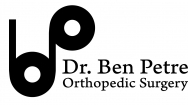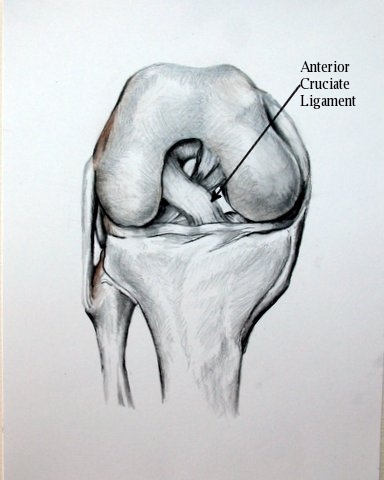ACL Tears are one of the most common knee injuries. There are more than 100,000 ACL tears in the US alone every year. Most ACL tears are a result of landing or planting in cutting or pivoting sports with or without contact. Most athletes will require an ACL reconstruction if they have a complete tear and want to return to sports. The ACL is crucial for stabilizing the knee when turning or planting.
Non Operative Treatment of the ACL
The ACL can be treated non operatively with strengthening and rehabilitation and occasionally injections when the ACL is not completely torn and the knee is still stable or if the patient is low demand and not doing cutting and pivoting sports. The mainstay of ACL non-operative treatment is strengthening of the muscles around the knee, especially the hamstrings. Focused physical therapy supervised by Dr. Petre is a great way to accomplish this.
ACL Surgery
Anterior cruciate ligament surgery is a complex surgery that requires expertise in the field of sports medicine. Many factors should be considered when discussing surgery including the athletes level of competition, age, previous knee injury, other injuries sustained, leg alignment, and graft choice. Occasionally, we can stimulate the bodies natural ability to heal to heal the native ligament, called a “healing response” surgery. More commonly the ligament needs to be replaced by a graft, either your own tissue or from a cadaver. Your graft choice can be confusing, please click here for an explanation of graft selection.
Rehabilitation is crucial to any ACL surgery. Your ACL surgery will take 6 to 9 months for complete recovery and return to sports. Revision ACL surgery will often take 9 months to more than a year. During this time, Dr Petre will guide you through the rehabilitation process. The early rehab, usually lasting 6 weeks, will focus on maintaining full knee motion and preventing scar tissue. The second phase of rehab will then be directed towards regaining your strength. Finally, Dr. Petre will return the athlete sport specific rehab before returning the athlete to competition.
If Dr Petre recommends surgery for your ACL, he may prescribe rehab before surgery as many studies have shown that having good motion before your surgery will benefit you after surgery.
Surgery FAQs
- How long does surgery take? 1-2 Hours
- What kind of anesthesia will I need? Dr . Petre recommends general anesthesia with a femoral nerve block for post operative pain control
- How long will I be in the hospital? Many patients can leave that same day, occasionally Dr. Petre will have you stay one night in the hospital
- Is surgery safe? All surgery has risks; however, ACL surgery when compared to all other surgery is very safe.
- Will I need physical therapy? Yes. Physical therapy is crucial to an excellent outcome.
- How long before I can return to work/school? For jobs and academics that require minimal physical exertion and can be done with crutches, many people can return in a few days to 2 weeks. For jobs that require heavy lifting or exertion, it is safe to plan 4 weeks off.
- How long before I can return to my sports? 6 months is a minimum to allow the graft to heal and 9 months is the average.
- How long before i can drive a car? All patients must be off pain medicine before driving. Many patients can return to driving in 2 weeks or less.
- How long will I be on crutches? If the ACL is the only structure repaired/reconstructed in the surgery, you will be on crutches until you can walk without a limp, typically 3-5 days.
- How long will I need pain medicine? Most patients need 3-5 days of pain medicine and sometimes up to 2 weeks. If you are still having pain requiring narcotic pain medicine after a month, Dr. Petre may ask you to see a pain specialist.
- How long will I need a brace or sling? Typically, a brace is worn for the first 2 weeks. A sports ACL brace will be worn in sports for a full 1-2 years after surgery.

